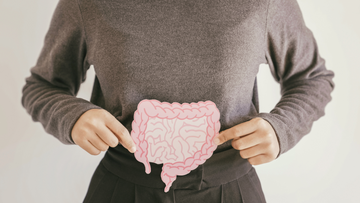
Vertigo, a condition characterized by a spinning sensation, dizziness, and loss of balance, can significantly impact one's daily life. While its origins are diverse, ranging from inner ear disorders to neurological issues, recent studies have shed light on the potential link between caffeine consumption and the exacerbation of vertigo symptoms.
The Caffeine-Vertigo Connection
Caffeine, a central nervous system stimulant found in coffee, tea, energy drinks, and various other beverages, has long been associated with its potential to affect the nervous system. Recent research suggests that for individuals prone to vertigo, caffeine might play a role in intensifying their symptoms.
1. Blood Flow and Inner Ear: One way caffeine may impact vertigo is through its influence on blood flow. The inner ear, responsible for balance and spatial orientation, relies on adequate blood supply. Caffeine, known to constrict blood vessels, could potentially reduce blood flow to the inner ear, triggering or worsening vertigo.
2. Central Nervous System Stimulation: Caffeine's stimulant effects on the central nervous system can lead to increased heart rate and heightened alertness. For those susceptible to vertigo, these physiological changes may disturb the delicate balance maintained by the inner ear, leading to dizziness and imbalance.
3. Dehydration: Caffeine's diuretic properties can contribute to dehydration, a known trigger for vertigo in some individuals. Insufficient hydration can impact blood volume and viscosity, further disrupting the inner ear's function.
4. Anxiety and Stress: Caffeine consumption can also exacerbate anxiety and stress, both of which are linked to increased vertigo symptoms. The stimulation of the central nervous system by caffeine may amplify the psychological aspects of vertigo, making episodes more distressing for affected individuals.
Managing Vertigo through Caffeine Reduction:
While the relationship between caffeine and vertigo is complex and varies among individuals, some may find relief by moderating their caffeine intake. Here are some considerations:
1. Gradual Reduction: Abruptly quitting caffeine can lead to withdrawal symptoms, including headaches and increased dizziness. A gradual reduction allows the body to adjust more smoothly.
2. Stay Hydrated: Counteract the diuretic effects of caffeine by ensuring adequate hydration. Water is essential for maintaining overall health, and proper hydration can positively influence vertigo symptoms.
3. Monitor Triggers: Keep a journal to identify specific triggers for vertigo episodes. This may include caffeine intake, certain foods, or other lifestyle factors. Understanding individual triggers is crucial for effective management.
4. Consult with Healthcare Professionals: Individuals experiencing persistent or severe vertigo symptoms should seek guidance from healthcare professionals. They can provide a comprehensive assessment, ruling out underlying health conditions and offering tailored advice.
While research on the caffeine-vertigo relationship is ongoing, it's clear that caffeine can influence factors such as blood flow, anxiety, and dehydration, potentially exacerbating vertigo symptoms. Recognizing individual sensitivity and making informed choices about caffeine consumption can be a valuable step toward managing vertigo and improving overall well-being. As with any health-related concern, consulting with healthcare professionals is essential for personalized guidance and support.





